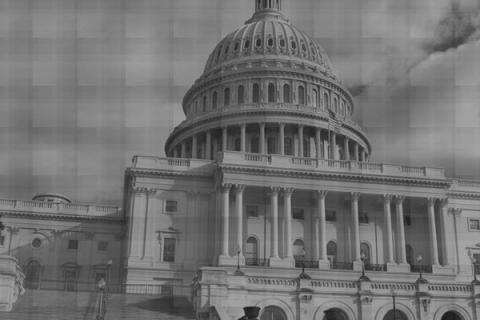The Department of Justice pre-cleared California’s top two open primary under Section 5 of the Voting Rights Act, thereby opening the way for the implementation of the new primary system statewide in next year’s elections.
Section 5 of the federal Voting Rights Act requires that any changes in voting procedures or practices must be submitted for review by the Attorney General of the United States or by US District Court for the District of Columbia if those changes will affect a so-called “covered jurisdiction,” which has had a history of discriminatory voting practices. Covered jurisdictions include nine states, dozens of counties and a number of townships across the country.
Pre-clearance by the Civil Rights Division of the Department of Justice requires proof that the proposed change “does not deny or abridge the right to vote on account of race, color, or membership in a language minority group,” according to the Department of Justice. In California, four counties are considered covered jurisdictions under the law’s language minority group provision: Kings, Merced, Monterey and Yuba.
In a letter to Senior Elections Counsel Robbie Anderson on Monday, the Chief of the Justice Department’s Voting Section, T. Christian Herren Jr., stated that the Attorney General “does not interpose any objection” to the top two primary election system and related changes to California’s Election Code. However, the letter continues, this determination does not bar the Attorney General from filing suit at a future date to prevent enforcement of the changes to the election code.
According to Daniel Howle of the California Independent Voter Project (CAIVP), if the Justice Department had not approved the changes for the covered jurisdictions, the law could not have been implemented statewide because elections for the legislature and Congress cannot be conducted under different rules in different districts.
In a 2006 report on Voting Rights Enforcement and Reauthorization, the US Commission on Civil Rights found a steady decline in objections to changes in voting procedures and practices by the Department of Justice.
“Objections as a percentage of submitted changes from covered jurisdictions have declined markedly over 40 years to the point that during the last decade, objections have virtually disappeared,” wrote Commission Chair Gerald Reynolds in the report’s letter of transmittal.
However, the Justice Department regularly files complaints that raise claims under various provisions of the Voting Rights Act. Over the last ten years, eight complaints have been filed against city and county governments in California under the landmark law’s language minority provisions. The most recent complaint, filed against Riverside County in February 2010, alleged that the county failed to provide an adequate election program for Spanish-speaking voters. The resulting court order authorized federal observers to monitor elections in the county through 2013 and provided the county an extension to answer the official complaint.
Though California’s top two open primary has been pre-cleared by the Department of Justice, a number of lawsuits against the system are still pending in the courts. Earlier this month, US District Court Judge Otis Wright cancelled a hearing in a lawsuit challenging Senate Bill 6, which provides the legal scaffolding for California’s Top Two Open Primary Act.
“It is very likely that Judge Otis Wright will uphold both the discriminatory policy on party labels, and the policy that permits write-in space on ballots but says those write-ins can never be counted. Judge Wright had earlier this year refused to issue an injunction against the labels policy,” wrote Richard Winger at Ballot Access News.
A second suit, originally filed in 2005, challenges Washington State’s top-two system on the basis of freedom of association and ballot access. The state’s Republican, Democratic and Libertarian parties filed briefs in the case just this month, potentially providing a template for their counterparts in California should they decide to file suit against the system here.

